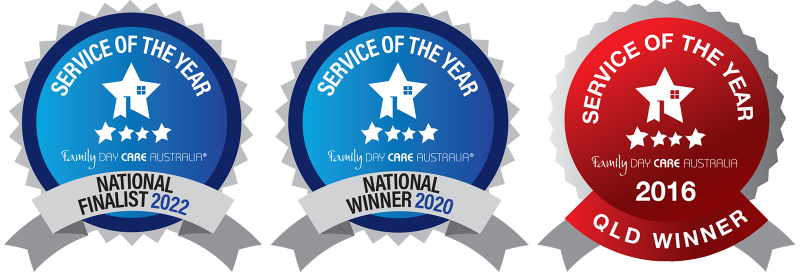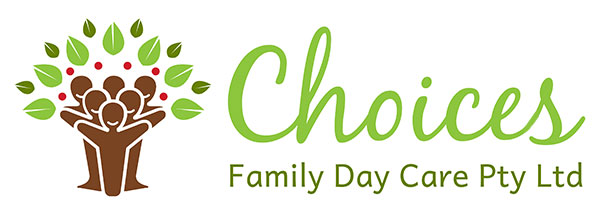Service Statement of Philosophy & Guiding Principles
Philosophy of Care: adapted from the early childhood code of ethics in relation to children.
The service will:
Acknowledge the uniqueness of each child by:
• encouraging reciprocal feedback between families and services;
• providing formal and informal observations of children;
• referring families to other agencies as required; and
• keeping accurate child records.
Recognise early childhood as a unique stage of a child’s life by:
• planning for the individual needs of each child, based on knowledge of early childhood theory and practice; and
• planning to meet specific needs of pre-school and school age children.
Acknowledge that ‘play’ is a major factor in the development of children by:
• planning for each child to play and learn through real life experiences, based on the knowledge of childhood development; and
• sharing this knowledge and experience with colleagues and childcare students.
Ensure that each learning opportunity is equitable and values each child’s contribution by:
• providing opportunities for all to contribute to the program through suggestions, participation and advice; and
• providing opportunities for all children and families to share their individual cultural needs and beliefs.
Focus on the child’s needs within the context of family by:
• recognising and responding to the unique influence that a family has in a child’s life;
• working in partnership with families in meeting the child’s individual needs; and
• enhancing families’ knowledge of the service program through direct contact, phone calls, newsletters, and parent and childcare personnel meetings.
Create and maintain a safe, healthy and happy environment in which each child feels nurtured by:
• selecting appropriate Staff who are sensitive and responsive to the needs of children and families; and
• providing supervision, safety checks and implementing regulatory requirements to ensure the physical environment is safe as far as practicable.
In relation to families the service will:
Acknowledge the uniqueness of each family and recognise the significance of its culture by:
• our child care Staff learning about families using their service and their cultures;
• encouraging families to express their cultures within the program;
• encouraging acceptance of children and families from other cultures; and
• supporting children to follow their traditions /culture.
In relation to communities the service will:
Acknowledge the communities that we work within by:
• Promote a sense of community within the early childhood setting;
• Build connections between the early childhood setting and the local community.
In relation to childcare personnel, the service will:
Accept the responsibility to provide professional development by:
• supporting and encouraging child care staff to extend their knowledge and understanding of child care and developmental programs;
• fostering competence, well-being, positive self-esteem and work satisfaction;
• resourcing services with adequate materials and equipment;
• providing opportunities to child care staff to become pro-active through membership of professional organisations and professional networks;
• recognising the importance of working as a team and cohesiveness among services to ensure quality outcomes for children and families;
• promoting policies and practices that are non-discriminatory;
• reviewing and improving work conditions as required.
Ensure that statutory requirements are fully met by:
• developing and reviewing policies, practices and procedures as required to meet the changing needs of the services and their cliental.
Promote cooperation between other professional organisations and agencies by:
• endorsing the best interests of children through community awareness and advocacy for best child care practices;
• providing relevant in-service training to all child care personnel;
• supporting the wider child care community by providing appropriate personnel to conduct training opportunities;
• responding appropriately to media releases, Government initiatives, submission and consultations; and
• working actively with childcare related agencies and other professional organisations to develop a support network across services.
Evaluate service programs by:
• using reflective practices and reviewing programs regularly to ensure continued quality care in all services;
• conducting regular surveys and evaluating feedback to assess the quality outcomes for children and families.
Philosophy Of Care - Guiding Principles
Guiding principles that apply to the quality areas: -
The following six principles apply across all seven quality areas of the National Quality Standard. These principles inform the delivery of quality Early Childhood Education and Care and school age care. Services should consider these principles when working to achieve the National Quality Standard and improve quality at the service:
The rights of the child are paramount
Each child has the right to be an active member of the community in which they live; to have their individual and cultural identity recognised and respected; to express their opinions and have their views considered in any decisions that may affect them.
The National Quality Standard reflects Australia’s commitment to the United Nations Convention on the Rights of the Child and the obligation of all those who work with Children to protect Children from harm, respect their dignity and privacy and safeguard and promote every Child’s wellbeing.
Children are successful, competent and capable learners
Children are active learners from birth, constructing their knowledge, meanings and understanding through their interactions, relationships and experiences.
They are able to form opinions, express their ideas, collaborate with others, plan and persist in learning.
The starting point for all learning is what Children already know. Rich, engaging environments and meaningful interactions, where Children’s voices are listened to and acted upon, build on this foundation for successful life-long learning.
Equity, inclusion and diversity
In a fair and just society the intrinsic worth of all Children and their Families, their strengths and their right to equitable access and participation in the community is clearly visible in all aspects of service delivery.
Programs for the care, education and recreation of Children have a unique opportunity to include Children from all Family circumstances, cultural backgrounds and levels of ability.
In particular, a commitment to the full participation of Children with additional needs and their Families involves enabling their initial access as well as supporting their day to day participation in the program.
It requires capturing and maximising resources to support each Child’s participation in and engagement with the program.
By providing nurturing environments and supportive relationships they ensure that each child is valued for who they are and has opportunities to reach their full potential. One of Australia’s greatest strengths lies in its unique history and diverse heritage.
The many different cultures, contexts and values of Families and communities contribute to the richness of contemporary Australian society and inform plans for meaningful learning experiences for Children.
Valuing Australia’s Aboriginal and Torres Strait Islander cultures
An approach that recognises and respects the strengths and contribution each individual and group makes and challenges bias, builds positive relationships and responds sensitively to the particular needs of each child and their Family. Such an approach values Australia’s Aboriginal and Torres Strait Islander cultures as a core part of the nation’s history, present and future.
This is relevant for all services, not only services with Aboriginal and Torres Strait Island Children and Families enrolled in the service.
The role of Parents and Families is respected and supported
Parents and Families are recognised as the Child’s primary nurturers and teachers. They have both a right and a responsibility to be involved in decision making affecting their child.
Respectful, collaborative relationships strengthen the capacity and efforts of Parents and Families and of Early Childhood Education and Care and school age care services to support their Children and promote each Child’s learning and wellbeing.
High expectations for Children, Educators and service providers
The best interests of Children and their right to learn and develop in a safe and nurturing environment is the primary consideration in all decision making at the service and is visible in the actions, interactions and daily work with Children.
Programs that reflect best practice in the care, education and recreation of Children set high standards and expectations for all those responsible for the delivery of the service. They have an open and accountable organisational culture that is flexible and responsive to the local community.
They continually reflect on their practice to find ways to improve outcomes for Children in their service.
How our philosophy guides pedagogy and teaching decisions:
• We acknowledge the uniqueness of each child by observing children’s individual needs, interests and abilities.
• We believe play is a major factor in children’s development and we plan for each child’s play and learning through real life experiences.
• We ensure that each learning opportunity is equitable and values each child’s contribution to the program through suggestions, participation and advice.
• We promote a sense of belonging by providing opportunities for all children and families to share their culture.
• We encourage open and honest communication between families and the service.
• We believe in working in partnership with families to meet the individual needs of each child.
• We recognises that it does take a village to raise a child and are committed to building connections between the service and the local community.
• We believe in early intervention and refer families to appropriate agencies and services.
• We believe in working in partnership with families to enhance their knowledge of our services program through methods such as face to face contact, phone calls, emails, parent communication notes, HubWorks, survey monkeys, Facebook and newsletters.
• We believe in providing a happy and healthy environment by being sensitive and responsive to the needs of children and families.
• We provide effective supervision and a safe environment by implementing regulatory requirements and annual safety checks.
• We support and encourage staff to extend their knowledge, be pro-active in professional networks and recognise the importance of working as a cohesive team.
• To meet statutory requirements, the service develops and reviews, policies, practices, and procedures as required meeting the changing needs of the service.
Choices Family Day Care
Queensland State Winner
Family Day Care Australia
Service Of The Year 2015 & 2016
National Winner in the 2020
Excellence in Family Day Care Awards

